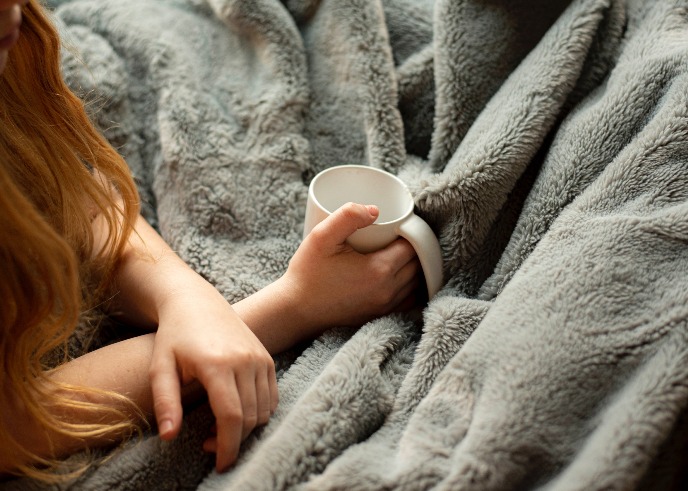Energy Conservation Tips for Students

The days are getting colder, and with the current energy crisis, conserving energy has become more relevant than ever before. But how can you best save energy as a student? In this blog, Sarah walks you through the basics and offers 6 tips on how to stay warm.
Student life can be a financially difficult time. With the cost of housing, energy, and living in general on the rise, being a student is becoming more financially challenging. The energy we use in our homes is one aspect that we do have some control over. Being frugal with your energy will save you money, and the planet will love you for it! As we enter into the darker colder months of the year, here are some tips for saving energy in your student homes that are good for the Earth ánd your wallet.

The Basics
The good news is, you probably already know or implement many energy saving techniques! Habits such as turning off lights when leaving a room, air drying clothes, and keeping the temperature low are common energy-savers. Ensuring that your dishwasher and washing machine are full before running them, and washing at colder temperatures, will conserve both water and energy. Set these machines to run during “off-peak” hours (after 11PM and before 7PM), as this is a greener way of using electricity! If you can, switch to energy-saving light bulbs as well. Unplug household appliances and electronics when not in use, take shorter/colder showers, and only boil the water you need in the kettle…all of these little habits will save you money and lower your carbon footprint!
Staying Warm
It can be so tempting to reach for that thermostat the second there’s a chill in the air. Before you do, try some of these tips to stay warm:
-
Embrace the Sun
Open your shutters, curtains and blinds when the sun is out to heat the room. Close them again just before it gets dark, to keep the heat in. -
Use Layers
Blankets, jumpers, fluffy socks. Invest in some thermal base layers! Personally, I like to wear scarves around the house from September through March.
-
Prevent draughts
Close windows, doors and vents when it’s very cold. Get draught-stoppers for the bottoms of draughty doors and windows. Buy an extra duvet for your bed so you can keep the heating low at night.
-
Get a infrared radiator
Electricity is cheaper than gas, and oftentimes more eco-friendly and less polluting. Another option is to study at the university library or your favourite cosy café during the day, and turn the heating down while you’re out.
-
Insulation
If you live in a student house or apartment, ask your landlord about the insulation in your accommodation. Old, poorly insulated houses can cost a fortune to heat, and your landlord may be willing to look into upgrading this for you. Unless you ask, the answer is definitely no!
-
Warm up your body
Enjoy warm, nourishing meals, hot beverages, or eat spicy food! Use any extra boiling or hot water from cooking for your hot water bottle. Exercise may be the last thing you want to do when it’s miserable out, but I find that just 15 minutes of gentle yoga or a short brisk walk is enough to get the blood flowing and warm me right up.


Nobody’s Perfect
Environmentalist and author Paul Hawken said “From the planet’s point of view, there is no difference between a climate denier and someone who understands the problem but does nothing.” I like to remind myself of this when I feel overwhelmed by the challenges that eco-conscious living can bring! Just try your best – some action is better than none.

